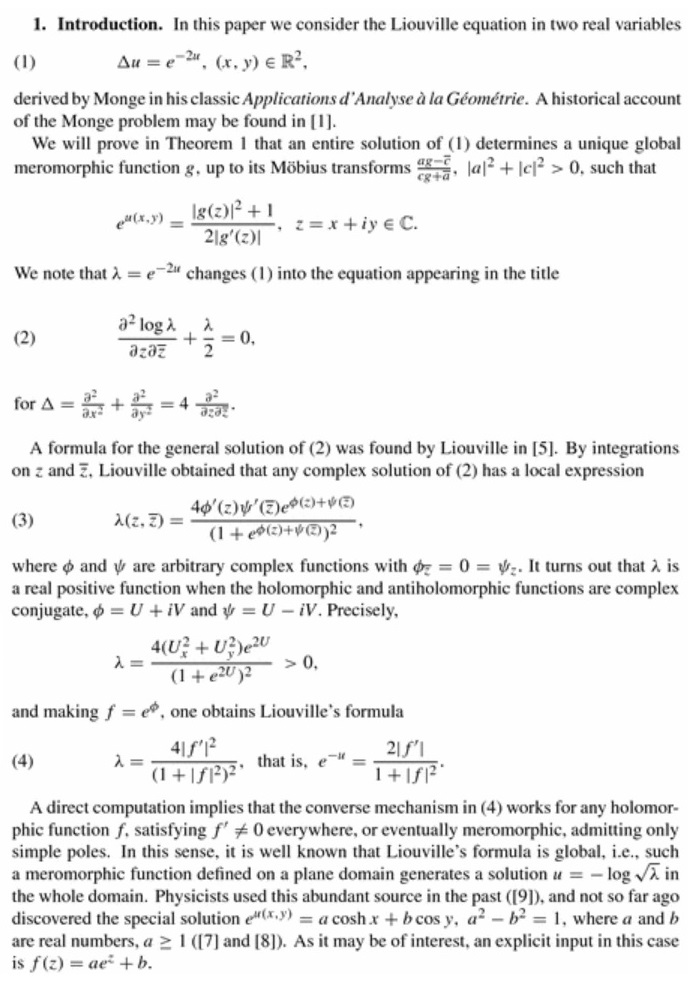It seems hard for me to find that the solution of the following equation $$ \Delta u+e^u=0 $$ defined on a simply-connected domain $D\subset R^2$ must be of form $$ u(z)=\log\frac{4|f'|^2}{(1+|f|^2)^2}, $$ for some holomorphic function $f$ on $D$. A lot of authors claim that it is classical, but in my memeory the Liouville theorem claims that a bounded holomorphic function on $R^2$ must be a constant. It seems there is a gap between them, so could any one help me to move on?
-
3$\begingroup$ It might be worth pointing out that, nowadays, this theorem follows immediately from basic differential geometry: The point is that, when $u:D\to\mathbb{R}$ satisfies the above equation, the conformal metric $g = e^{u(z)}|\mathrm{d}z|^2$ on $D$ has Gauss curvature $K\equiv +1$, so we must have $g = f^*(g_0)$, where $f:D\to\mathbb{CP}^1=S^2=\mathbb{C}\cup\{\infty\}$ is meromorphic and $g_0 = 4|\mathrm{d}w|^2/(1+|w|^2)^2$ is the standard metric with $K\equiv+1$. Of course, $f$ is only unique up to unitary linear fractional transformations; it cannot always be taken to be holomorphic, though. $\endgroup$– Robert BryantCommented Mar 6, 2015 at 9:44
1 Answer
Is it possible that the Liouville theorem you are thinking of is the boundedness theorem, whereas the result you have in mind is from a different paper of Liouville's? In particular, the paper:
Liouville, J. (1853). Sur l’équation aux différences partielles ${d^2 \log \lambda \over du dv}\pm {\lambda \over 2a^2}= 0$. Journal de mathématiques pures et appliquées, 71-72.
You can find the latter paper cited by quite a number of more recent ones including, for example, a paper of Brito and Leite with a result as you specified. See, e.g., (4) on pp. 501-502:

-
1$\begingroup$ That's exactly what I am looking for, especially the uniquness upto fractional linear transformation is also proved in your cited paper, thanks a lot! $\endgroup$– van abelCommented Mar 6, 2015 at 9:06
